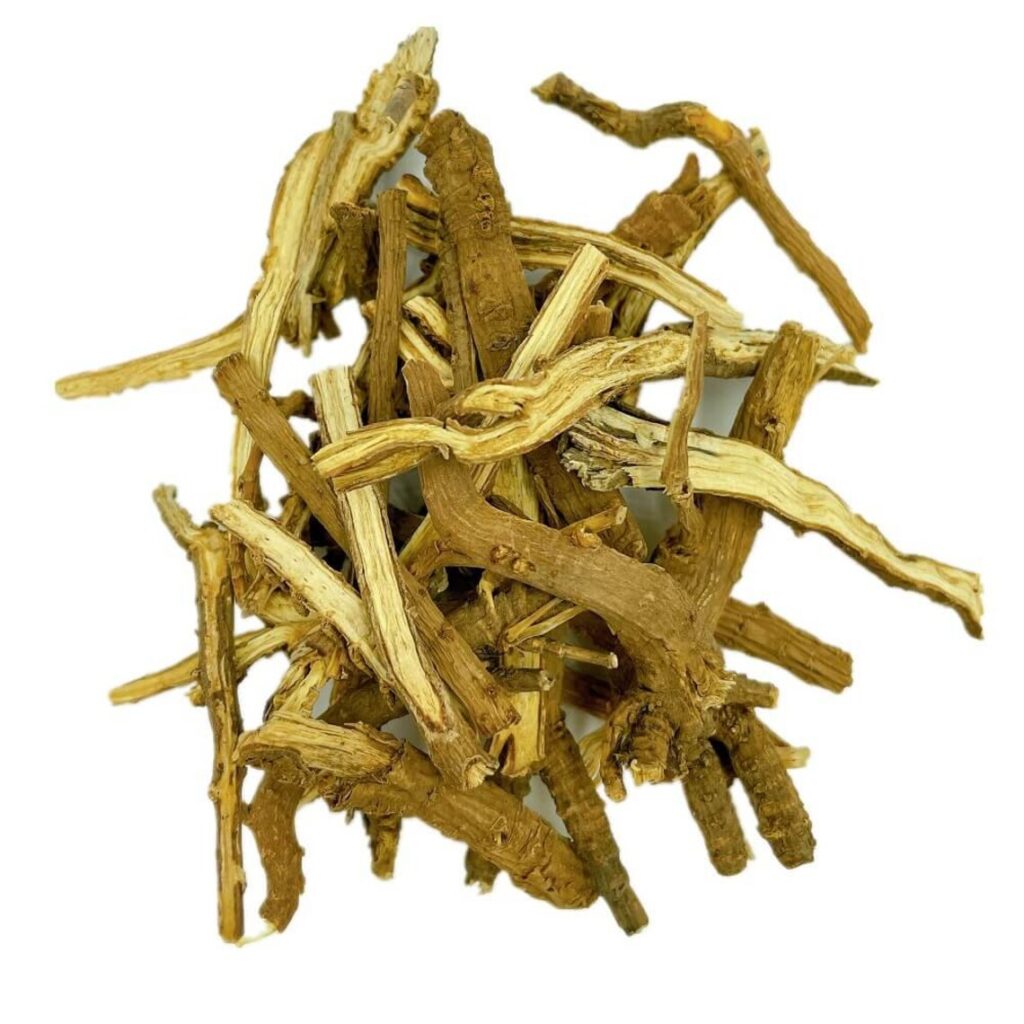
I find bupleurum root to be a magical herb. It has unique properties that are impossible to find elsewhere.
Bupleurum root helps to lower fever and relieve pain, which is why it is included in many anti-viral formulas [1]. That’s not what makes it so special, though.
More spectacularly, bupleurum root is used to lift and release sustained viral infection. This means that if you have been struggling with a virus for months or even years and you can’t seem to shake it, bupleurum is the herb for you [2]. I don’t know any other herb that do this as well as bupleurum does. For best effects in treating prolonged viral infection, take bupleurum in the famous TCM formula Xiao Chai Hu Tang. Trust me, it works!
At the same time that bupleurum works more superficially to release viral infection, it also works more deeply in the liver, with hepato-protective activity [3], anti-inflammatory properties [4], stimulation of bile flow [5], and an ability to reduce cholesterol and triglycerides [6]. Bupleurum has also been shown to treat infectious hepatitis [7], and to prevent liver cirrhosis [8]. If you have a problem with your liver, bupleurum root is your friend.
It’s this ability to work both superficially and more deeply that makes bupleurum root so exceptional. In Chinese medicine, it is said to work at the Shao Yang level of the body, which is neither at the exterior nor in the interior, but at the intersection of both. One of my mentors uses bupleurum root as a “revealer”. He says that by harmonizing both the exterior and the interior of the body, bupleurum can magically reveal more deep-seated problems.
In addition to its ability to balance both the exterior and the interior of the body, bupleurum can also stimulate your immune system. Studies show that bupleurum root has the ability to stimulate cellular immunity in mice [9], and also has an inhibitory effects against B-hemolytic streptococcus, Vibrio cholerae, mycobacterium tuberculosis, leptospira as well as influenza, polio and hepatitis viruses [10].
Chinese doctors found all of these wonderful properties in an herb that is not even native to their own country. The pinyin title for bupleurum root is “kindling of the barbarians”, meaning that it was brought into China thousands of years ago by invaders. Originally, it was not even a Chinese herb!
If you’re curious to see the amazing effects of bupleurum root at work, try our famous Chinese Bitters or GCG formulas. Both of them include and rely on bupleurum root and its unique properties.
- Sheng Yang Yi Xue Yuan Xue Bao (Journal of Shenyang University of Medicine), 1984; 1(3):214
- Zhong Yao Xue (Chinese Herbology), 1988; 105
- Zhong Yao Yao Li Yu Ying Yong (Pharmacology and Applications of Chinese Herbs), 1983; 888
- Ibid.
- Zhong Yi Yao Xue Bao (Report of Chinese Medicine and Herbology), 1988; (1):45
- Zhong Yao Xue (Chinese Herbology), 1998; 103:106
- Xin Yi Yao Xue Za Zhi (New Journal of Medicine and Herbology), 1974; 2:18
- Ibid., 2:28
- Shang Hai Yi Ke Da Xue Xue Bao (Journal of Shanghai University of Medicine), 1986; 13(1):20
- Zhong Yao Xue (Chinese Herbology), 1998; 103:106
About the Author: Rebecca Wong has a BA in English Literature from the University of Waterloo and has been working in the herbal business since 2000. She studied at the Ontario College of Traditional Chinese Medicine under respected authorities Paul Des Rosiers and Vu Le, and graduated from the East West School of Planetary Herbology under Michael Tierra. She received training as a yoga teacher at The Branches in Kitchener/Waterloo, and therapeutic yoga teacher training from the School for Somatic Soulwork under Deniz Aydoslu. She now teaches yoga for anxiety, depression and burnout at Rebecca's Restful Yoga Studio in Toronto.